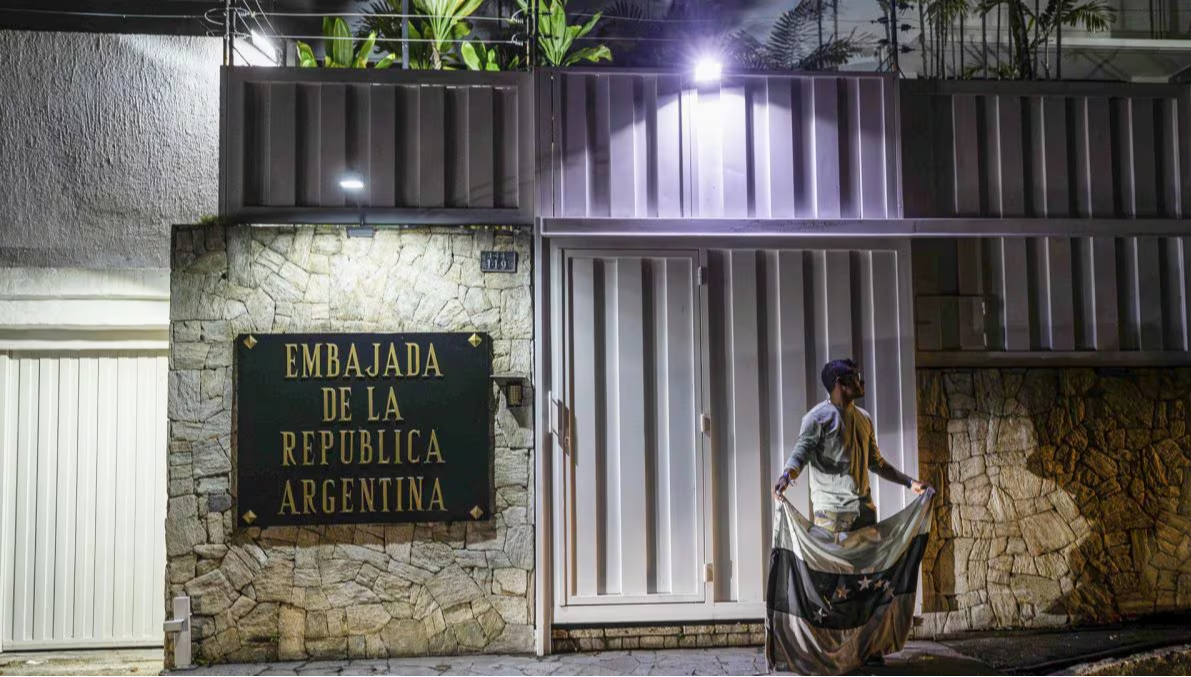
Caracas, December 22 (RHC)-- Fernando Martínez Mottola, who was residing in the Embassy of the Republic of Argentina in Venezuela, voluntarily presented himself at the main headquarters of the Public Ministry (MP) in Caracas, reported the Attorney General, Tarek William Saab through a statement.
In the statement, the prosecutor reports that Martínez Mottola “faced the law and made a statement at the prosecutor’s office regarding the serious violent, conspiratorial and destabilizing acts organized from the aforementioned diplomatic headquarters during the last few months.”
Mottola was one of the six opposition members who took refuge in the Argentinian embassy in Venezuela and according to the details provided in the statement, he left the diplomatic headquarters on Thursday to put himself at the disposal of the authorities.
In this regard, the publication disseminated through the social networks of the Public Ministry highlights that the aforementioned “decided to actively collaborate with the Venezuelan justice system, within the framework of the due process provided for in Article 49 of the Constitution of the Republic.”
And it points out that the Attorney General's Office, as the director and head of the criminal investigation, "remains firm both in its duty to guarantee justice, as well as in its fight against any national or international group or entity outside the law, that threatens the peace of the Venezuelan nation."
Fernando Martínez Mottola took refuge in the Argentinian residence in Caracas on March 21st, one day after five other close collaborators of the opposition leader María Corina Machado did the same. They are all accused of conspiring against the Venezuelan government.
According to the statement published by the Attorney General, the other members of the extremist organization Vente Venezuela who accompanied Fernando Martínez Mottola are fugitives from justice.
Who is Martínez Mottola?
The man who turned himself in to justice on Thursday was an advisor to the opposition alliance Democratic Unity Platform (PUD), which refuses to recognize the reelection of President Nicolás Maduro and claims the victory of its candidate Edmundo González in the elections of July 28th.
Before, he was Minister of Transport and Communications during the second government of Carlos Andrés Pérez, with whom he was also president of the state communications company Cantv. At that time he was known for being part of the so-called "Chicago Boys" who formed the cabinet of the then president made up of "technocrats" trained in universities in the United States and appointed by the International Monetary Fund (IMF).
At that time, they were in charge of carrying out the neoliberal policies suggested by these financial entities, characterized by the reduction of the State to its minimum expression, which led to the popular uprising known as “El Caracazo” on February 27, 1989.
He was also part of the political team surrounding Juan Guaidó, who proclaimed himself interim president of Venezuela with the endorsement of the United States and other Western countries. At that time, he acted as head of the opposition delegation in the so-called “secret negotiations” with the government of the President of the Republic, Nicolás Maduro, promoted by the Kingdom of Norway in 2019.

